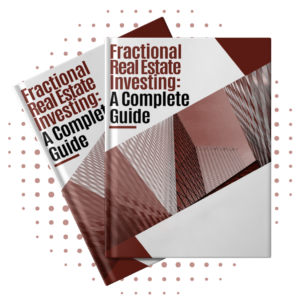
Are you looking for a place to grow your income and savings, but with a higher interest rate? If so, you might have to look beyond a money market account in this low-interest rate environment.
According to Bankrate.com, the national average savings account interest rate is only 0.06%. On the other hand, most money market accounts offer rates closer to 0.50%, which is more than a savings account, though still well below the current rate of inflation (2-5% in recent years). Therefore, investors should seek better interest rates to keep up with and beat inflation.
Did you know that you could even DOUBLE, TRIPLE (or more) money market account interest rates with other types of investment accounts while still maintaining many of the benefits of a money market account?
Maybe you’re looking for a smart way to earn more interest in your emergency fund, or just want to take greater control of your personal finances or diversify your investment portfolio.
In any case, it might be time to start looking elsewhere to “park” your savings and earn more interest. Here’s what you need to know about Money Market Accounts and some of the high-yielding alternatives out there.
Jump to a Section:
What is a Money Market Account?
Money Market Accounts (MMA's) are a type of deposit account offered by traditional banks, online banks, and credit unions. A money market account is different from a Money Market Mutual Fund. Money Market Accounts are also referred to as MMAs, MMSAs, and MMDAs.
MMA's are considered short-term and quite similar to savings accounts in that they're accessible at any time. However, just like a checking account, you can write checks and get an ATM/debit card to use for any purchases.
Although they can give you a higher level of liquidity and price stability, MMAs typically offer lower annual percentage yields (APY) compared to long-term equity or fixed-income securities.
The minimum balance and deposit requirement, the monthly maintenance fees, and the check-writing fees all depend on the bank you choose. The interest rate and APY also vary from one bank to another.
Key Facts About Money Market Accounts:
They are also known as money market savings accounts and money market deposit accounts.
Each bank has a different minimum deposit requirement to open a money market account, which may be higher than a standard savings account, and may impose monthly fees if the MMA falls below the minimum balance.
The Federal Deposit Insurance Corp. insures money market accounts for up to $250,000, offering safety and security from risk.
Money market accounts pay higher interest rates than regular savings accounts but have more restrictions. The reason is that the funds from MMAs can be invested in certificates of deposit (CDs), government securities, and commercial paper.
Disadvantages of Money Market Accounts
Though MMAs might offer you a higher rate of return, it does come with some drawbacks you should consider before opening an account:
Minimum balance requirements - Most banks that offer money market accounts will require you to deposit a large amount and keep a minimum balance, up to $5,000 or even $10,000 to just open an account.
Interest rates - Unfortunately, money market accounts don’t always give you the best interest rates. Sometimes they’re comparable to the annual percentage yield you could get with a traditional savings account. Or you might need to reach a minimum balance requirement to receive a higher rate.
Fees and withdrawal limits - Similar to some savings accounts, money market accounts can charge a monthly maintenance fee. Though you might be able to waive the monthly fee by meeting a minimum daily balance, you want to make sure they’re not eating away at the interest you’re earning with your savings. And just like savings accounts, withdrawals are capped at six per statement cycle (monthly).
Online Savings Account Alternatives - while brick and mortar banks offer tiny rates of return, some online savings accounts offer annual percentage yields between 0.5-1% competitive with MMA's. Even online bank checking accounts can be close to 0.5%.
Alternatives to Money Market Accounts
Now that you understand how MMAs work, you might be wondering if there’s other types of accounts that are better and offer higher returns. Here are some options to invest in instead of money market accounts.
High yield savings accounts
These days, you can find a high yield savings account that offers up to 0.55% annual percentage yield. You can find them at online banks, which are different from traditional banks in that they don’et have a brick-and-mortar store or the associated costs that come with it. This gives them the financial flexibility to focus all of their resources on providing their customers with better APY rates, financial tools, and services.
High yield savings accounts are also a good short-term solution because they’re completely liquid so you can access them immediately, and they’re relatively safe if you find one that’s FDIC insured. Just be sure to know the fees and minimum balance requirements so they don’t surprise you!
Bonds
Sometimes called a fixed income security, a bond is a debt security that enables the issuer (also called the borrower) – a government, municipality or corporation – to raise money for a set period of time.
In return for your money, the issuer agrees to pay you a specified interest rate for the duration of the bond and repay the principal when the bond matures. You can earn up to 3% APY depending on the length of the term and bond type (corporate, municipal or treasury bonds).
So you can simply earn interest and collect your monthly payments while waiting for the bond to reach maturity.
The interesting thing about bonds is that they can be bought and sold on a secondary market. So, after they’re initially issued, their value can fluctuate if you decide to sell. This is important to consider when choosing your bonds because the price you pay or receive may no longer be its face value.
Notes (Demand Notes/Promissory Notes)
A note is a legal document representing a loan made from one party to another under certain terms. These terms may include details such as the amount owed, maturity date, interest rate, and date of issuance.
Notes can come in different forms and names based on the industry. But the most common type is the promissory note, which states a specific promise to pay and comes with specific terms set by the lender. Some of these notes can even pay up to 10% interest on your money.
A demand note is another type of loan that has no fixed term or repayment schedule. In this case, the lender can “demand” their funds at any time given they have met any agreed requirements.
Corporate demand notes are attractive because they can offer investors flexibility without complex terms, with rates that range from 0.5% to up to 5%! The only drawback is that they’re not FDIC-insured so if the issuer is not able to meet their returns or term requirements, you risk losing your earnings and possibly some principal as well.
Conclusion
Money market accounts are a safe investment option for your emergency funds, but there are potentially other options out there that pay higher interest rates on your money.
EquityBrix can help you grow your wealth through our fractional real estate investment platform. Our team marries the needs of investors and real estate developers by providing opportunities for above-market returns. EquityBrix is committed to creating high-yield investment offerings, and we can help guide you through the new era of real estate investing.
If you want more information about tokenized real estate investing go to EquityBrix or EquityBrix.com/Learn.
If you are looking to grow your wealth and diversify your investment portfolio by learning about innovative ways of investing in real estate go to EquityBrix, or contact us for more information, or sign-up for the EquityBrix Newsletter.
*Disclaimer: EquityBrix is not an investment adviser. This information is for educational purposes only and does not constitute investment or tax advice. It’s important to be informed and to make your own investment decisions or do so in consultation with a professional financial advisor. Under no circumstances should this material be used or considered as an offer to sell or a solicitation of any offer to buy an interest in any investment. Any such offer or solicitation will be made only by means of a written online prospectus relating to the particular investment.

